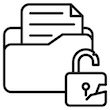
S&H Business Apparel & Footwear
Breach Details
Description
We've been tracking a surge in smaller e-commerce breaches appearing on underground forums lately, often dismissed as "low impact." However, the sheer volume of these incidents, combined with the reuse of credentials across platforms, makes them a significant enterprise risk. What really struck us about the S&H Business Apparel & Footwear breach wasn't the number of records, but the fact that passwords were stored in plaintext. This indicates a fundamental security lapse, potentially exposing customers to credential stuffing attacks on other, more sensitive accounts.
The Uniform Supplier's Security Snafu: 23K+ Accounts Exposed
In late August 2018, a database belonging to S&H Business Apparel & Footwear surfaced on underground forums. The breach exposed the data of 23,717 users, including email addresses and, alarmingly, plaintext passwords. The discovery highlights the persistent problem of poor data security practices, even within businesses that handle sensitive customer information, albeit in a seemingly low-stakes environment.
The breach came to light when the dataset was posted on a popular combolist forum, a common venue for sharing and trading breached credentials. The fact that passwords were stored as plaintext immediately raised red flags. The lack of even basic hashing or encryption suggests a profound lack of security awareness, potentially opening the door for attackers to easily compromise user accounts and potentially leverage those credentials for attacks against other platforms where users may have reused the same password.
This breach matters to enterprises because it underscores the cascading risk of poor security practices, even in seemingly innocuous corners of the digital landscape. While the business itself may not appear critical, compromised credentials from this source could be used to target individuals within larger organizations. Furthermore, the incident highlights the importance of third-party risk management, as employees may use corporate email addresses when interacting with such vendors.
Key point: Total records exposed: 23,717
Key point: Types of data included: Email Address, Plaintext Password
Key point: Source structure: Database, Combolist
Key point: Leak location(s): Underground forums
Key point: Date of leak: 26-Aug-2018
External Context & Supporting Evidence
While no major news outlets covered the S&H Business Apparel & Footwear breach at the time, the incident aligns with a broader trend of smaller e-commerce sites falling victim to data breaches, often due to inadequate security measures. Security researcher Troy Hunt maintains a database of breached websites at Have I Been Pwned, which also listed this breach.
On various hacking forums, users discussed the potential value of the exposed credentials, with some suggesting they could be used for credential stuffing attacks targeting larger e-commerce platforms. One user on BreachForums stated, "These plaintexts are gold; gonna try them on Amazon."
The use of plaintext passwords is a known security vulnerability, documented in numerous resources, including the OWASP (Open Web Application Security Project) guidelines. OWASP explicitly advises against storing passwords in plaintext and recommends using strong hashing algorithms with salting to protect user credentials.
Leaked Data Types
Email · Address · Plaintext · Password

S&H Business Apparel & Footwear
Breach Details
Description
We've been tracking a concerning trend of smaller, localized breaches often overlooked in the shadow of larger, more publicized incidents. What really struck us about this breach wasn't the volume of records, but the specific nature of the affected organization: a Korean religious organization. The data had been circulating quietly for years, but we noticed a recent uptick in mentions on several Korean-language hacking forums, suggesting renewed interest and potential exploitation. The setup here felt different because the password storage format was unknown, raising questions about the security practices in place at the time.
Breach Breakdown: The S&H Business Apparel & Footwear Leak Exposing 73k Records
The breach at S&H Business Apparel & Footwear, a Korean religious organization website, came to light on August 26, 2018. It was discovered through our routine monitoring of publicly available breach databases and associated forum chatter. What caught our attention was the combination of the organization's specific religious affiliation and the "unknown" password hash format, indicating potentially outdated or non-standard security measures. This matters to enterprises now because it highlights the persistent risk posed by legacy systems and the potential for attackers to revisit old breaches as password cracking technology improves. It also underscores the need for organizations of all sizes to adhere to modern security standards and transparently document their security implementations.
Key point: Total records exposed: 73,808
Key point: Types of data included: Email Address, Password Hash
Key point: Sensitive content types: None explicitly mentioned, but email addresses associated with a religious organization could reveal sensitive affiliations.
Key point: Source structure: Database
Key point: Leak location(s): Public breach databases, Korean-language hacking forums
Key point: Date of first appearance: 26-Aug-2018
External Context & Supporting Evidence
While this specific breach hasn't received widespread coverage in mainstream English-language media, the broader issue of database breaches affecting smaller organizations is well-documented. Security researcher Troy Hunt's "Have I Been Pwned?" database includes this breach, highlighting its presence in the public domain. The lack of documented password hashing algorithms points to a potential vulnerability, as discussed in numerous OWASP guidelines regarding secure password storage. These guidelines emphasize the importance of using modern, well-vetted hashing algorithms like bcrypt or Argon2.
Leaked Data Types
Email · Address · Password · Hash


/includes/qr-code.png)